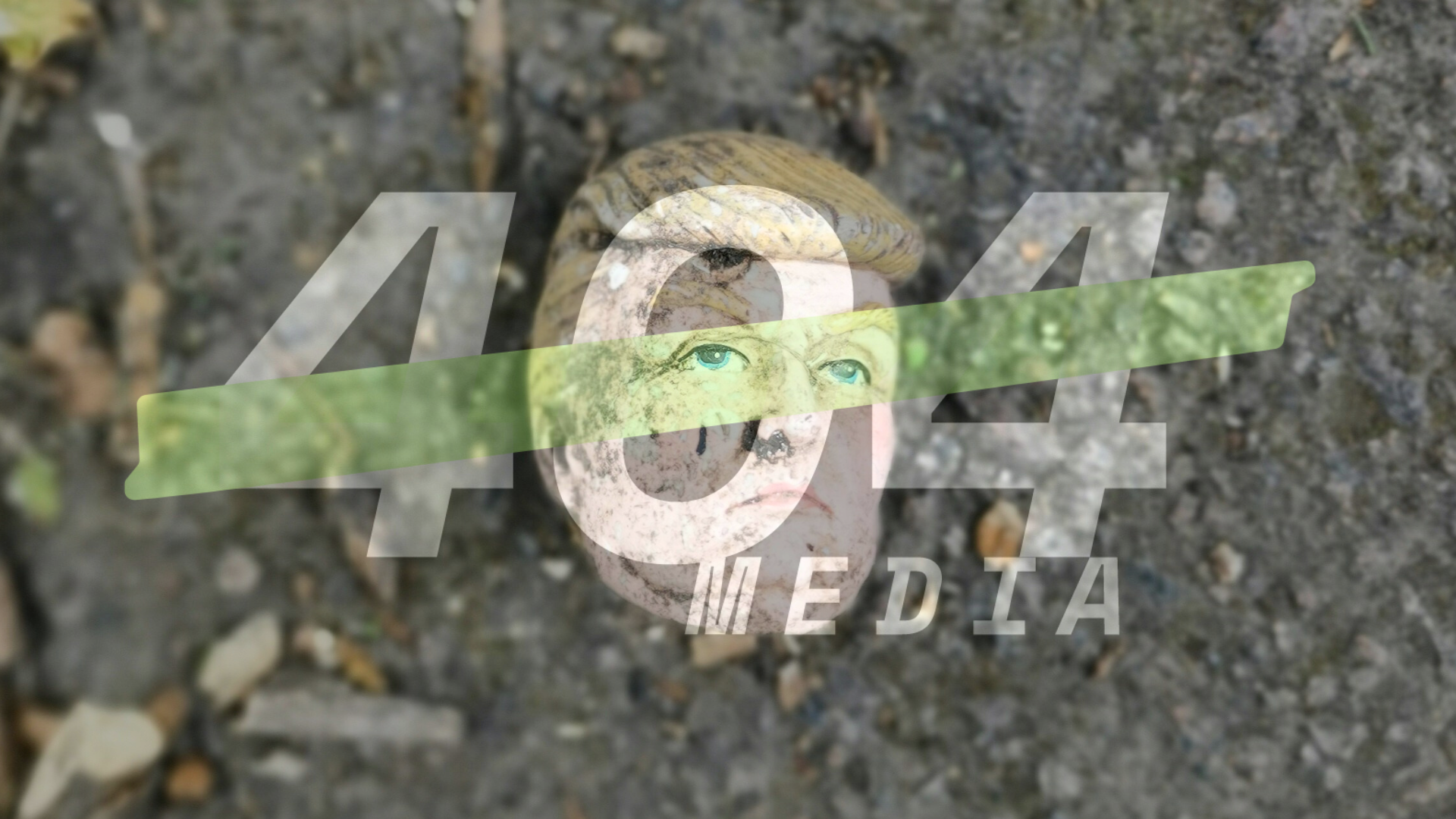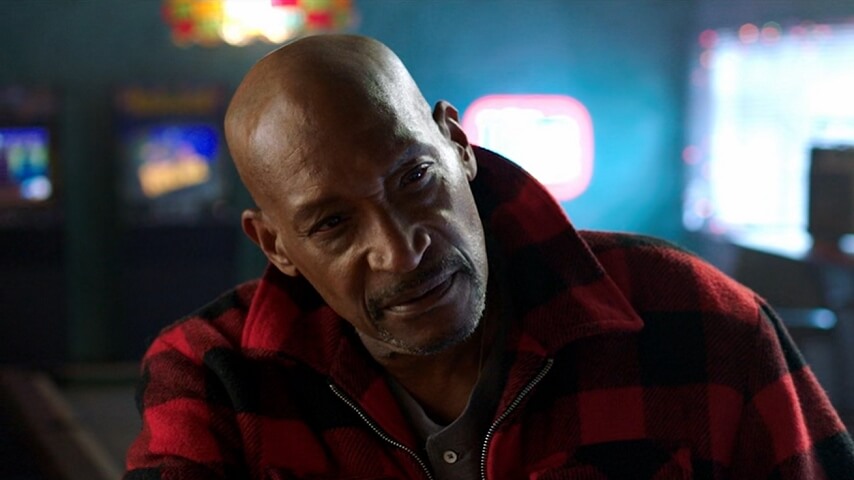
In the days following Donald Trump’s presidential victory, we have seen a larger-than-normal number of people canceling their subscriptions to 404 Media. Alongside these cancellations, many people have explained that they are canceling not because they do not like our articles but because they feel a general sense of depression, that nothing matters, or that they can no longer bear reading the news.
There were many media outlets who wrote notes to their readers in the immediate aftermath of Trump’s shocking victory in 2016. Some of these notes said that their publications would position themselves as a resistance force against Trump, or made grand, sweeping pronouncements about what their work would be able to do. We cannot and will not make false promises to you about the power of journalism—especially at a small publication—to stop the country’s knowing march into authoritarianism. But we can explain our approach to the work and we can demonstrate to you why it matters.
In 2016, the four of us were at Motherboard, doing work that is very similar to the work that we’re still doing today. We have covered technology through one Trump term and intend to continue covering technology through the second Trump term. What we found to be true during Trump’s first term, remained true during Joe Biden’s presidency, and will remain true as long as we do this: we cannot set the bar for our success at the systemic saving of democracy. Instead, we have found that our work can and does make incremental positive change at the local, state, and federal level, and that, over time, these small improvements become increasingly important.
The way that we have always done this and the way we will continue to do this is by fearlessly reporting on the ways technology and the powerful people and companies who own these technologies wield it against normal people, but especially against society’s most vulnerable people. Over the years, we have been called anti-technology or too cynical. But we are not anti-technology. We want technology that benefits people, and in order to do that we also have to expose how it can invade people’s privacy, surveil them, steal their work, steal their bodily autonomy and harass them, destroy any sense of a shared reality, value robotic plagiarism over human creativity, and undermine workers. We will hold companies, people, and politicians who accelerate towards this future to account. But there is another side to this coin. We have, and will continue to champion and amplify people, groups, movements, and ideas that use technology to make our lives better, are fighting back against anti-human uses of technology, and serve to challenge, decentralize, or redistribute power from concentrated big tech companies to the masses.
We’ve called this perspective, which we hope shines through in most of our work, two things over the years: “Tech populism,” and “local reporting from the internet.” These are very similar but slightly different things. It is not—or should not be—a radical idea to report stories with the core assumption that technology should make life better for the people who use it and for society as a whole. And it should not be radical to believe that the immense amount of wealth and so-called progress being created from technological progress should be spread evenly and thoughtfully among its users, not tech CEOs and an oligarch class. That “progress” so far has instead brought us more intensive surveillance capitalism, the widespread theft of artists’ and writers’ work, the ransacking of natural resources, and the subjugation of workers in the United States and around the world. Our work is populist in that we recognize that many of the problems plaguing the United States today and which are factors that have laid the groundwork for Trump’s return—income inequality, a lack of affordable housing, unstable work, the widespread inability to tell what is real and what is fake—are being at least partially driven by technology and/or the immense wealth of the people who own tech companies.
“Local reporting from the internet,” meanwhile, means telling stories from the perspective of users and often lower-level tech employees, not by begging company communications professionals for access to executives or exclusive new features. Most of our articles tell the stories of hyperspecific communities of people who are using technology or are impacted by it in some way. By focusing on how technology impacts people, we have found that we can impact technology and make the world slightly better, regardless of who the president is.
This reporting strategy worked in Trump’s first term and it will be even more salient in a second term in which he has sought and created an even closer relationship with big tech CEOs. Trump has formed an alliance with Elon Musk and many of Silicon Valley’s worst people, the richest and most powerful of whom actively helped him get elected or immediately kissed the ring after he won the election–including Jeff Bezos, who demanded the newspaper he owns kill its planned endorsement of Kamala Harris and then immediately congratulated Trump on his “extraordinary political comeback and decisive victory.” Trump and especially, Musk, have campaigned on the false idea that mass deregulation and corporatism will somehow help normal people rather than further immiserate them.
All of this may sound vague or like empty platitudes. So, let’s make this concrete.
In Trump’s first term we saw the widespread purging of government science and climate data. We also saw nonprofits, decentralized communities, and random people on the internet form collaborative efforts to successfully archive and share this data. We saw government workers risk their jobs and their freedom to leak critical information about purges happening within their agencies, and expect to see the same in Trump’s second term. We filed hundreds of Freedom of Information Act requests with federal agencies—which may be hamstrung in Trump’s second term—but we also filed hundreds of public records requests with state and local agencies that uncovered the creation and spread of surveillance systems, revealed that Apple was ordering recyclers to shred perfectly good iPhones MacBooks into zillions of pieces and showed Utah was contracting with a company turning the state into a surveillance panopticon (the CEO of that company was later fired, lost contracts, and had to rebrand). Under Trump, we reported on the widespread sale of cell phone location data to data brokers and bounty hunters, which led companies to stop the practice and ultimately led to multi-hundred million dollar fines from the FCC. Under Trump, we saw tech companies monopolize repair but the beginnings of the right to repair movement, the end of “Warranty Void if Removed” stickers, and the first pieces of legislation that would ultimately become fair repair laws passed over the last few years. Under Trump, we saw the end of net neutrality but our reporting helped kill big telecom lobbying campaigns and accelerate the rise of independent locally owned government ISPs that are faster, more reliable, and cheaper than the likes of Comcast and Cox. Under Trump, we reported on the use of Predator drones to surveil Black Lives Matter protesters and, because of our reporting, we saw Senators fight back against this practice. Under Trump, we saw and reported on the rise of the first workers unions in the tech industry, broad protest against the gig economy and algorithmic bosses, and worker rebellions at Amazon, Google, Amazon, Facebook, video game companies, and other major tech companies.
In the early days of Trump’s first term, we reported on the ways the average person (and even hackers) found their own ways to protest, how scientists reacted and fought back against the threat of a science-denier administration, and how Trump’s team approached transparency online–including the efforts of archivists to preserve digital history.
We started reporting on the impending fallout of FOSTA/SESTA long before Trump signed it into law in 2018: Sex workers told us that instead of saving any sex trafficking victims as part of its stated purpose, it would put more people at risk of exploitation. We listened, we reported on those worries and fears, and when they came true, we kept reporting on it. When platforms and site sections shuttered out of fear of legal retaliation from the Trump administration’s war on porn, we talked to everyone from site operators, users, sex workers, and hosting providers to try to understand how they were affected. Through the years we have covered the ways bodily autonomy, educational institutions, and marginalized people are threatened by leaders that align with and promote extremist ideology. We have covered the ways that the data broker industry specifically allows for the targeting of women seeking abortions and sells data to the military about Muslims—and has led to both corporate and government action that have made doing this type of surveillance more difficult.
At 404 Media, we’re continuing this work, as we’ve promised to do from the beginning. We’ve covered how the incoming vice president spurred hate in a small town. How AI boosters helped cheerlead Trump back into office. And how advertising, funded by tech billionaires, micro-targeted and lied to voters on the biggest social media platforms in the world, using divisive rhetoric. Not every story we do leads directly to positive impact, but many of them do. Our work has led to new moderation policies that make it more difficult to make nonconsensual AI porn (and child abuse imagery), a lawsuit against Nvidia for building AI models on the back of other peoples’ labor and creative work; fixes in the New York subway system to preserve privacy; Google kicking a company that claimed to be targeting adverts based on what people said near their smart devices from its platform (and Google booting a global surveillance tool from its ecosystem too); YouTube removing 1,000 videos that were involved in an elaborate Medicare scam; Amazon taking down dangerous AI-generated misinformation; and shutdown a tool that used for harassment that was scraping Discord en masse. We’ve reported on what surveillance technology U.S. government agencies have purchased, and will continue this work as the Trump administration carries out its explicit plans for mass deportations.
We’re faced again with an administration made up of people who explicitly want to ban porn, restrict women’s healthcare, demolish reproductive rights and make it harder still to access sexual education. We followed these stories in Trump’s first term, and in Biden’s, too—and we have no intention to slow down or stopping now that Trump’s headed back to the White House. When Trump won in 2016, we weren’t sure if our work mattered. Now we are sure that it does.






